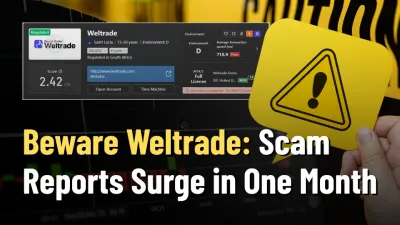Pocket Option Scam Alert: Real Trader Complaints
Pocket Option scam alert — real traders report blocked withdrawals, fake KYC, slippage, and sudden bans after profits. Read multiple 2025 complaints before you deposit.
简体中文
繁體中文
English
Pусский
日本語
ภาษาไทย
Tiếng Việt
Bahasa Indonesia
Español
हिन्दी
Filippiiniläinen
Français
Deutsch
Português
Türkçe
한국어
العربية
Abstract:Asian companies are likely to find it harder to refinance dollar-denominated debt, the decline in a key metric suggests, with the currency at a two-decade high and a recent surge in inflation forcing central banks to raise interest rates.

The interest coverage ratio of these companies – a measure of how easily they can pay interest on outstanding debt – slipped to 5.1 at the end of March, the lowest in a year, dragged down partly by firms in China, South Korea, Indonesia and Vietnam.
Reuters analysed 1,700 Asian companies (excluding financial firms) for which comparable data was available from Refinitiv. They had a combined market capitalisation of more than $1 billion.
Asian companies in total raised $338 billion in dollar and euro debt last year.
But 2021 also saw the bottom in interest rates. By the end of March 2022, Asian companies debt had surged to $6.7 trillion, up by a quarter from two years earlier.
Now, the ascending greenback and rising central bank rates are making interest payments dearer for smaller Asian firms that do most business locally and do not have much exports to boost the value of their earnings.
Also, business conditions have deteriorated as raw material prices have jumped and companies have struggled to pass the extra cost on to customers, squeezing margins.
“Currency risk was put under the carpet in the past five years as interest rates remained low and regional currencies remained resilient to weaker economic conditions,” said S&P Global analyst Xavier Jean.
“As rates increase, we think currency risk will feature more into fund-raising options and the ability and willingness of companies to fund in U.S. dollars and into distressed situations.”
The interest coverage ratio for Indonesian companies, which Jean said tended to be sizable borrowers in foreign currency, fell to -4.10 at the end of March, from a multi-year high of 25.13 at the end of September last year.
The ratio for Chinese companies fell to 3.02 from 5.10 for the same periods.
Chinese property firms, under pressure since the China Evergrande Group crisis last year, will struggle to refinance debt, said Herald van der Linde, a senior equity strategist at HSBC.
These companies have dollar bonds with a value of $12.9 maturing in the second half of 2022.
An interest coverage ratio is operating profits divided by interest expenses.
There is no indication, however, that most Asian companies will not meet debt payments. Indeed, their median score in another ratio – net debt to earnings before interest, tax, depreciation and amortisation – was at a seven-year low of 2.5 at the end of March. A ratio higher than 3 is considered a cause for concern.
While large Japanese and South Korean companies, including SoftBank Group Corp, issued billions in dollar debt last year, these are typically hedged against any appreciation in the dollar. A weak local currency also raises the value of their dollar assets and exports.
But sketchy hedges for smaller firms in countries including Indonesia and Vietnam are likely to erode balance sheets.
“Indonesian home builders have high exposure to a stronger U.S. dollar, as their hedges are only partly effective, and most issuers debt is mainly denominated in U.S. dollars while cash flows are denominated in the local currency,” said Matt Jamieson, a senior analyst at Fitch.
Asian home builders, utilities and raw-material suppliers are the key industries with forex debt maturing this year, he said.
S&Ps Jean said credit quality for at least one in eight companies could be pressured in the next 12 months because of rising interest rates. That number could rise to one in six if inflation persists.
Dollar borrowing has already plummeted.
Asian companies issued just 98 bonds denominated in dollars or euros in the first half of this year, the fewest in six years and down from 338 last year.

Disclaimer:
The views in this article only represent the author's personal views, and do not constitute investment advice on this platform. This platform does not guarantee the accuracy, completeness and timeliness of the information in the article, and will not be liable for any loss caused by the use of or reliance on the information in the article.

Pocket Option scam alert — real traders report blocked withdrawals, fake KYC, slippage, and sudden bans after profits. Read multiple 2025 complaints before you deposit.

Weltrade scam surge in August 2025: traders report fake prices, slippage manipulation, and delayed withdrawals. Protect your funds and think twice before trading.

Discover PU Prime’s new campaign, “The Grind,” and learn how trading discipline builds long-term success. Watch and start your trading journey today!

IG boosts FCA compliance by integrating Adclear’s AI tools. Learn how automation accelerates marketing approvals and ensures regulatory accuracy.
